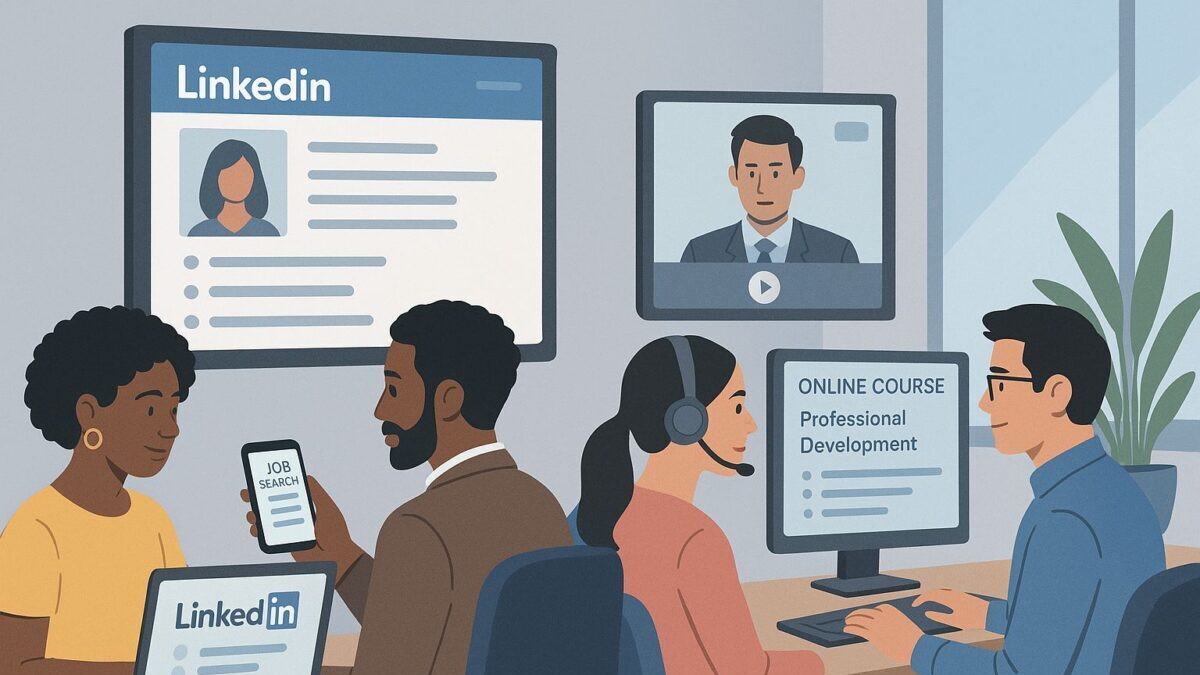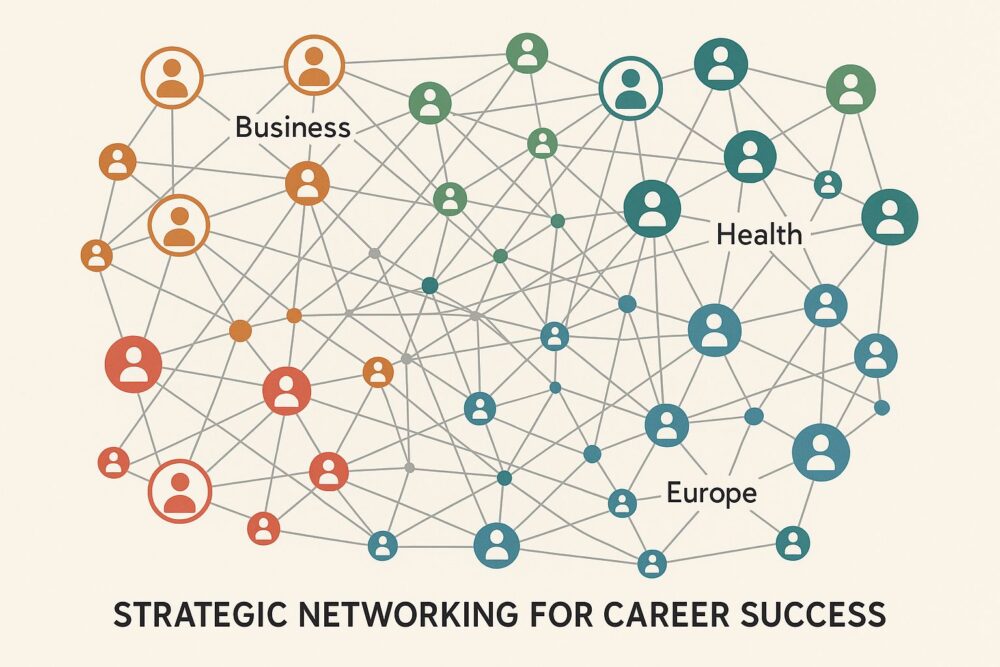Job Market Success: The notification arrived at 6:47 AM: “Thank you for your application. We received 847 applications for this position and will contact qualified candidates within 5 business days.” Sarah closed her laptop, knowing that her resume was now competing against nearly a thousand other professionals for a single mid-level marketing role.
Welcome to the 2025 job market—the most competitive employment landscape in modern history.
Recent World Economic Forum data reveals that while 170 million new roles will emerge globally by 2030, 92 million traditional positions are simultaneously disappearing. This massive reshuffling means that success no longer belongs to the most qualified candidates—it belongs to those who understand the completely new rules of career competition.
After analyzing over 100,000 successful job placements across multiple industries and regions, our recruitment specialists have identified six game-changing strategies that consistently separate the candidates who land dream jobs from those who remain stuck in application limbo.
Job Market Success: Strategy 1: AI-Proof Your Professional Identity
Job Market Success: The greatest misconception in today’s job market success is that AI will simply replace human workers. The reality is far more nuanced: AI is eliminating routine tasks while dramatically increasing demand for uniquely human capabilities.
The Skills That Matter Most:
- Creative problem-solving and innovation thinking
- Emotional intelligence and interpersonal communication
- Complex ethical reasoning and judgment
- Cultural sensitivity and cross-functional collaboration
- Adaptability and continuous learning mindset
Real-World Application: Instead of listing “data analysis” on your resume, highlight “strategic insight development from complex data patterns.” Rather than “customer service experience,” emphasize “relationship building and conflict resolution in multicultural environments.”
The professionals landing the best opportunities in 2025 are those who position themselves as AI enhancers rather than AI competitors. They showcase how they can leverage artificial intelligence tools to deliver superior results while providing the human insight and creativity that algorithms cannot replicate.
Strategy 2: Master Digital-First Professional Presence
Job Market Success: Your online professional identity now determines interview opportunities before recruiters ever read your resume. Companies use AI-powered screening tools that analyze LinkedIn profiles, portfolio websites, and digital communication patterns to create candidate shortlists.
Digital Presence Optimization:
- Maintain consistent professional branding across all platforms
- Share industry insights and thought leadership content regularly
- Demonstrate expertise through case studies and project showcases
- Engage meaningfully with industry discussions and trends
- Optimize profiles for AI screening systems using relevant keywords
Critical Success Factor: Your digital presence should tell a compelling story about your professional evolution and future potential, not just list past experiences. The most successful candidates create content that demonstrates their thinking process, problem-solving approach, and industry knowledge.
Strategy 3: Develop Cross-Cultural Intelligence as a Competitive Advantage
Job Market Success: Global businesses increasingly operate across multiple time zones, cultures, and communication styles. Professionals who can navigate this complexity while building authentic relationships across cultural boundaries become exponentially more valuable.
Cultural Intelligence Development:
- Learn business practices and communication norms for key international markets
- Develop language skills relevant to your industry and target companies
- Understand how cultural backgrounds influence decision-making and work styles
- Practice adapting your communication style for different audiences
- Build a network that spans multiple countries and cultural contexts
Market Reality: Companies expanding into Middle East, Asian, and African markets specifically seek professionals who can bridge cultural gaps while maintaining business effectiveness. This skill set commands premium salaries and accelerated career advancement.
Strategy 4: Build Strategic Professional Networks
Job Market Success: Traditional networking advice focuses on meeting as many people as possible. Successful 2025 job seekers take a radically different approach: they build deep, mutually beneficial relationships with a smaller number of strategically important professionals.
Strategic Networking Framework:
- Identify 50-100 professionals in your target industry and geographic markets
- Provide genuine value before asking for assistance or opportunities
- Maintain consistent, meaningful contact rather than sporadic outreach
- Participate in industry events, conferences, and professional associations
- Create opportunities for your network contacts to connect with each other
The Multiplier Effect: Strong professional networks don’t just provide job leads—they offer industry insights, skill development opportunities, and advocacy during hiring decisions. Our most successful placements often result from candidates who were specifically recommended by trusted network contacts.
Strategy 5: Demonstrate Continuous Learning and Adaptability
Job Market Success: Industries are evolving so rapidly that the skills gap between current capabilities and future requirements creates constant pressure for professional development. The candidates who thrive are those who proactively identify and address these gaps before they become critical.
Learning Strategy Implementation:
- Monitor industry publications and trend reports for emerging skill requirements
- Complete relevant certifications and training programs before they become mandatory
- Experiment with new tools and technologies in low-risk environments
- Document your learning journey and share insights with your professional network
- Seek challenging projects that stretch your current capabilities
Competitive Intelligence: Research the specific skills and technologies your target companies are implementing. Position yourself as someone who can contribute immediately rather than requiring extensive training and development.
Strategy 6: Perfect the Art of Value-Driven Communication
Job Market Success: The average recruiter spends less than 30 seconds reviewing each resume and conducts initial interviews in increasingly standardized formats. Success requires communicating your unique value proposition clearly and memorably within these constraints.
Value Communication Framework:
- Develop compelling 30-second, 2-minute, and 5-minute personal pitch versions
- Quantify achievements using specific metrics and outcomes rather than generic responsibilities
- Prepare concrete examples that demonstrate problem-solving abilities and business impact
- Research company challenges and prepare specific solutions you could implement
- Practice storytelling techniques that make your experiences memorable and relevant
Interview Excellence: The candidates who receive job offers are those who help hiring managers envision specific ways their addition will solve current problems and drive future success.
The Implementation Reality
Job Market Success: These strategies require consistent effort and strategic thinking rather than quick fixes or generic advice. The professionals who implement this comprehensive approach typically see results within 3-6 months: more interview invitations, stronger negotiating positions, and access to opportunities that never reach public job boards.
The 2025 job market success rewards preparation, strategic thinking, and genuine professional development over credentials alone. While the competition is fierce, the opportunities for well-prepared candidates are extraordinary.
Ready to transform your career trajectory? Connect with our recruitment specialists who understand both current market dynamics and emerging opportunities. Your next breakthrough opportunity is waiting for the right strategic approach.


